 Adulteration of herbal products is common and a threat to consumer safety.
Adulteration of herbal products is common and a threat to consumer safety.
Researchers from Canada and India are the latest to investigate the integrity of herbal products. Continue reading The reality of herbal supplement contamination
 Adulteration of herbal products is common and a threat to consumer safety.
Adulteration of herbal products is common and a threat to consumer safety.
Researchers from Canada and India are the latest to investigate the integrity of herbal products. Continue reading The reality of herbal supplement contamination
 Alternative explanations are common in about 47% of suspected drug-induced liver injury.
Alternative explanations are common in about 47% of suspected drug-induced liver injury.
Researchers in Germany raised the question of whether a similar frequency might prevail in cases of assumed herb-induced liver injury. Continue reading Profiling and assumed herb-induced liver toxicity
 Prof. Ernst and colleagues reviewed the evidence and they aren’t sanguine. Continue reading Contaminated and adulterated herbals
Prof. Ernst and colleagues reviewed the evidence and they aren’t sanguine. Continue reading Contaminated and adulterated herbals
 Researchers at Texas Chiropractic College, in Pasadena, studied children in the National Health Interview Survey (NHIS) in order to estimate their use of supplements. Continue reading Use of dietary supplements to enhance sports performance
Researchers at Texas Chiropractic College, in Pasadena, studied children in the National Health Interview Survey (NHIS) in order to estimate their use of supplements. Continue reading Use of dietary supplements to enhance sports performance
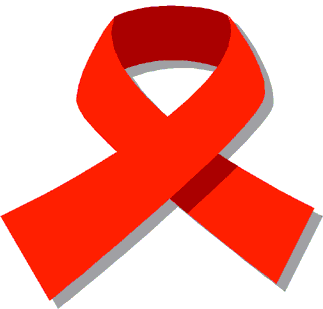 Researchers at Mbarara University of Science and Technology, in Uganda evaluated the use of herbal medicines among patients at the HIV clinic of Mbarara Regional Referral Hospital. Continue reading Use of herbal medicines during HIV/AIDS treatment
Researchers at Mbarara University of Science and Technology, in Uganda evaluated the use of herbal medicines among patients at the HIV clinic of Mbarara Regional Referral Hospital. Continue reading Use of herbal medicines during HIV/AIDS treatment
 Researchers at the University of Oslo, in Norway, studied the use of herbal supplements by pregnant Norwegian women. Continue reading Use of herbal supplements by pregnant women
Researchers at the University of Oslo, in Norway, studied the use of herbal supplements by pregnant Norwegian women. Continue reading Use of herbal supplements by pregnant women
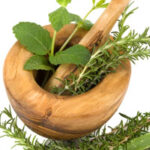 That’s the editorial position of the Canadian Medical Association Journal.
That’s the editorial position of the Canadian Medical Association Journal.
Here’s their reasoning. Continue reading No regulatory double standard for natural health products
 Dietary supplement use has steadily increased since the 1970s.
Dietary supplement use has steadily increased since the 1970s.
Researchers at the National Institutes of Health estimated dietary supplement use based on the National Health and Nutrition Examination Survey (NHANES) 2003–2006, a nationally representative survey. Continue reading Increasing popularity of dietary supplements
 Researchers at the University of Rome, in Italy, report on adverse reactions associated with herbal laxatives reported to the Italian Medicines Agency and the Italian National Institute of Health over 9 years. Continue reading Side effects from herbals used as laxatives
Researchers at the University of Rome, in Italy, report on adverse reactions associated with herbal laxatives reported to the Italian Medicines Agency and the Italian National Institute of Health over 9 years. Continue reading Side effects from herbals used as laxatives
 Here’s a look at the use of dietary supplements by physicians in 3 specialties in the US: cardiology, dermatology, and orthopedics. Continue reading Use of dietary supplements by medical specialists
Here’s a look at the use of dietary supplements by physicians in 3 specialties in the US: cardiology, dermatology, and orthopedics. Continue reading Use of dietary supplements by medical specialists
 Prof. Ernst and colleagues evaluated the evidence regarding the effects of herbal and dietary supplements on cognition (ability to reason) in menopause. Continue reading Herbal and dietary supplements on cognition in menopause
Prof. Ernst and colleagues evaluated the evidence regarding the effects of herbal and dietary supplements on cognition (ability to reason) in menopause. Continue reading Herbal and dietary supplements on cognition in menopause
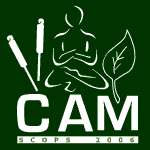 Researchers in Korea and the US studied EstroG-100 — a mixture of standardized extracts of Cynanchum wilfordii, Phlomis umbrosa and Angelica gigas. Continue reading Effect of EstroG-100 on menopausal symptoms
Researchers in Korea and the US studied EstroG-100 — a mixture of standardized extracts of Cynanchum wilfordii, Phlomis umbrosa and Angelica gigas. Continue reading Effect of EstroG-100 on menopausal symptoms
 Researchers at Midwestern University, in Glendale, Arizona, assessed the extent of appropriate counseling provided by pharmacists and nonpharmacists in retail settings. Continue reading Herbals for weight loss: Counseling by pharmacists and nonpharmacists
Researchers at Midwestern University, in Glendale, Arizona, assessed the extent of appropriate counseling provided by pharmacists and nonpharmacists in retail settings. Continue reading Herbals for weight loss: Counseling by pharmacists and nonpharmacists
 Dr. Jennifer Strohecker at the Intermountain Medical Center, in Salt Lake City, Utah, tells us the safety of warfarin (Coumadin) use can be compromised by many popular herbal and nonherbal supplements.
Dr. Jennifer Strohecker at the Intermountain Medical Center, in Salt Lake City, Utah, tells us the safety of warfarin (Coumadin) use can be compromised by many popular herbal and nonherbal supplements.
Here’s what we know from her research. Continue reading Risk of interactions between supplements and blood thinners
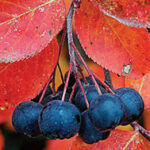 Products derived from the black chokeberry, Aronia melanocarpa, are claimed to be beneficial in disorders or diseases associated with oxidative stress. But these claims are based primarily on laboratory and animal research.
Products derived from the black chokeberry, Aronia melanocarpa, are claimed to be beneficial in disorders or diseases associated with oxidative stress. But these claims are based primarily on laboratory and animal research.
Researchers at Hebrew University, Jerusalem reviewed the evidence in people. Continue reading Review: Black chokeberry
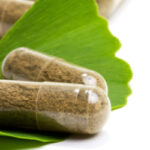 The New York Times reports, “Nearly all herbal dietary supplements tested in a Congressional investigation contained trace amounts of lead and other contaminants, and 16 of the 40 supplements tested contained pesticide residue that exceeded legal limits.
The New York Times reports, “Nearly all herbal dietary supplements tested in a Congressional investigation contained trace amounts of lead and other contaminants, and 16 of the 40 supplements tested contained pesticide residue that exceeded legal limits.
Here are the details of what the Government Accounting Office found. Continue reading High percentage of supplements are contaminated
So, researchers from the UK and China reviewed the evidence supporting the use of herbs and plant extracts to manage asthma. Continue reading Review of herbals to treat asthma
 A key outcome of early cancer drug studies is the toxicity of a new experimental drug. The use of CAM in patients with advanced cancer might make it difficult to make this determination.
A key outcome of early cancer drug studies is the toxicity of a new experimental drug. The use of CAM in patients with advanced cancer might make it difficult to make this determination.
Researchers at The University of Texas MD Anderson Cancer Center, in Houston, studied the prevalence of CAM use in their patients participating in experimental cancer drug treatment studies. Continue reading CAM use among cancer patients during drug trials
 During the American Heart Association meeting, Dr. Jennifer Strohecker, at the Intermountain Medical Center, in Salt Lake City, Utah, reported that documentation of supplement use in the medical chart is poor. Continue reading Use of herbal supplements by people taking blood thinners
During the American Heart Association meeting, Dr. Jennifer Strohecker, at the Intermountain Medical Center, in Salt Lake City, Utah, reported that documentation of supplement use in the medical chart is poor. Continue reading Use of herbal supplements by people taking blood thinners
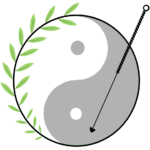 Premenstrual syndrome (PMS) refers to physical or emotional symptoms that typically occur about 5 to 11 days before a woman starts her monthly menstrual cycle.
Premenstrual syndrome (PMS) refers to physical or emotional symptoms that typically occur about 5 to 11 days before a woman starts her monthly menstrual cycle.
Researchers at Kyung Hee University, in Seoul, Korea reviewed the evidence. Continue reading Review: Acupuncture to manage PMS